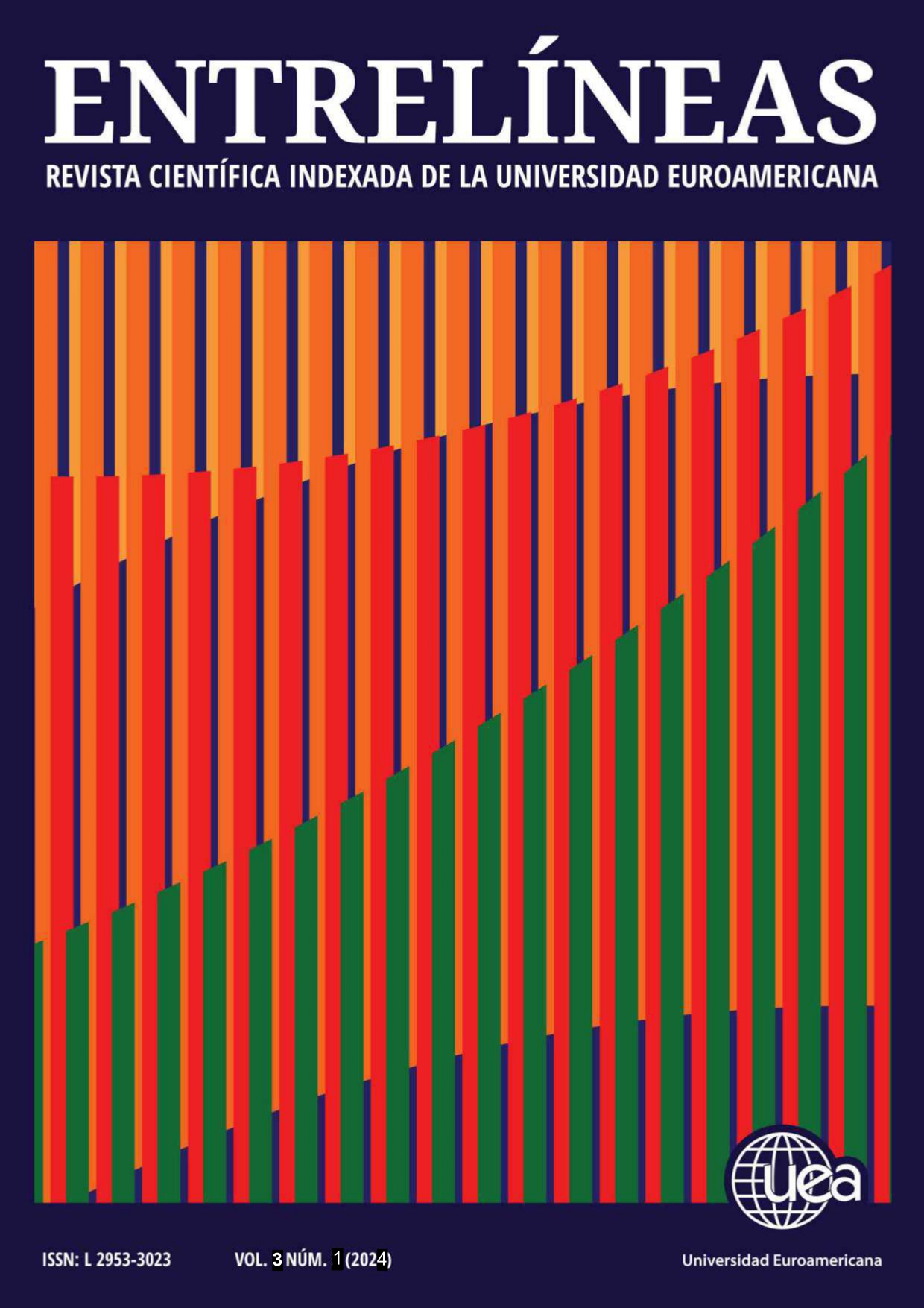Strategies for the Promotion of Sustainable Tourism in Panama City
DOI:
https://doi.org/10.56368/Entrelineas316Keywords:
Strategy, promotion, sustainable tourismAbstract
Tourist destinations are based on improving the tourist experience, creating three factors in the visit to tourist destinations: feelings, memories and experiences. The objective of this research is to describe the strategies for the promotion of sustainable tourism in Panama City. The methodology used is applied, under a descriptive scope; Through a qualitative approach, the design is non-experimental using the inductive method under a cross-sectional study considering multiple situations. Strategic planning is required in advertising and marketing that shows at a national and international level the tourist amenities and services that are offered, by establishing that gear of the tourism system where operators, demand and supply work hand in hand together so that the next period The sustainable development objective of reducing poverty is actually met and this leads to the other sixteen objectives being met. To form strategies for the promotion of sustainable tourism in Panama City, objectives must be considered that strengthen the institutional capacity of the Tourism Authority of Panama, invest in the tourism promotion of the country so that the tourist products offered by the city are improved. giving another focus on natural areas and other destinations of great interest, in addition to the improvement of infrastructure, maintenance of public spaces and provision of basic services.
Downloads
References
Abreu, J. L. (2014). El método de la investigación Research Method. Daena: International Journal of Good Conscience, 9, 195-204. http://www.spentamexico.org/v9-n3/A17.9(3)195-204.pdf
Acerenza, M (2019). Conceptualización, origen y evolución del turismo. Trillas.
Aguilar, C. (2014). Turismo y desarrollo sustentable: un acercamiento al estudio del turismo. Trauco.
Arias, F. G. (2019). Citación de fuentes documentales y escogencia de informantes: un estudio cualitativo de las razones expuestas por investigadores venezolanos. e-Ciencias de la Información, 9(1), 20-43. http://dx.doi.org/10.15517/eci.v1i1.32224
Balestrini, M. (2000). Como se elabora un proyecto de investigación. Consultores Asociados.
Barrera, C., & Bahamondes, R. (2012). Turismo sostenible: importancia en el cuidado del medio ambiente. Revista Interamericana de Ambiente y Turismo-RIAT, 8 (1), 50-56. https://acortar.link/2r4zFt
Boullon, R. (2006). Planificación del espacios turísticos. Trillas.
Cordero, Z. (2009). La investigación aplicada: una forma de conocer las realidades con evidencia científica. Revista Educación, 33 (1), 155-165. https://www.redalyc.org/comocitar.oa?id=44015082010
Espino Castillo, D., & González Pinilla, E. L. (2023). La responsabilidad social empresarial en el turismo sostenible. Societas, 25(2), 48–69. https://doi.org/10.48204/societas.v25n2.4108
Fernández, J. L. (2020). El turismo sostenible en España: análisis de los planes estratégicos de sostenibilidad de Zaragoza y Barcelona. ROTUR. Revista de Ocio y Turismo, 14(1), 94-106. DOI: https://doi.org/10.17979/rotur.2020.14.1.5942
Gordón, C. A. (9 de septiembre de 2023). ¿Cuántos somos y cómo está distribuida la población en la ciudad de Panamá según el censo de 2020? En La Estrella de Panamá. https://www.laestrella.com.pa/panama/nacional/distribuida-poblacion-ciudad.
Guevara, G., Verdesoto, A., & Castro, N. (2020). Metodologías de investigación educativa (descriptivas, experimentales, participativas, y de investigación-acción). Recimundo, 4 (3), 163-173. https://doi.org/10.26820/recimundo/4.(3).julio.2020.163-173
Hernández Sampieri, R., Fernández Collado, C., & Baptista Lucio, P. (2018). Metodología de la investigación. McGraw-Hill Interamericana.
Hernández, J. (2017). Impacto de la legislación en el turismo y las medidas que ofrecen las autoridades pertinentes ante su incremento. (Tesis de Maestría). UMECIT-Panamá.
Jiménez, C. (2006). Turismo sostenible: una revisión conceptual aplicada. El Periplo Sustentable, 11, 1-18. http://www.redalyc.org/articulo.oa?id=193420679001
Kerlinger, F. N. (1966). Foundations of Behavioral Research. Holt, Rinehart & Winston.
Ley 80, Que dicta normas de incentivos para el fomento de las actividades turística en Panamá, 8 de noviembre de 2012, Gaceta Oficial 27159-A.
Liburd, J. & Edwards, D. (eds.) (2018). Collaboration for sustainable tourism development. Goodfellow Pub Ltd.
Mora, J. (2022). Nuevas estrategias para un turismo sostenible. Aranzadi.
Morán, R. & Barrantes, C. (2020). El turismo sostenible como estrategia de desarrollo local: análisis de los resultados del proyecto “Promoviendo el turismo rural, sostenible y ecoeficiente en el valle de los volcanes, Arequipa”. Pontificia Universidad Católica del Perú.
Müggenburg Rodríguez, M. C. & Pérez Cabrera, I. (2007). Tipos de estudio en el enfoque de investigación cuantitativa. Enfermería Universitaria, 4(1), 31-38. http://www.redalyc.org/articulo.oa?id=358741821004
Organización de las Naciones Unidas. (1992). Declaración de Rio sobre el Medio Ambiente y el Desarrollo. https://www.un.org/spanish/esa/sustdev/documents/declaracionrio.htm
Organización de las Naciones Unidas. (2015). Objetivos del Desarrollo Sostenible. https://www.un.org/sustainabledevelopment/es/objetivos-de-desarrollo-sostenible/
Santos, J. (2004). Los impactos económicos, socioculturales y medioambientales del turismo y sus vínculos con el turismo sostenible. In Anales del Museo de América, 12, 236-274. https://dialnet.unirioja.es/servlet/articulo?codigo=1180522
Tapia, G. (2014). Turismo sostenible. Introducción y marco financiero. Revista de Investigación en Modelos Financieros, 1, 1-14. https://acortar.link/eDyuzr
Zamora, F. (2008). Turismo alternativo: servicios turísticos diferenciados. Trillas.
Downloads
Published
Issue
Section
License

This work is licensed under a Creative Commons Attribution-NonCommercial 4.0 International License.
You are free to:
- Share — copy and redistribute the material in any medium or format
- Adapt — remix, transform, and build upon the material
- The licensor cannot revoke these freedoms as long as you follow the license terms.
Under the following terms:
- Attribution — You must give appropriate credit , provide a link to the license, and indicate if changes were made . You may do so in any reasonable manner, but not in any way that suggests the licensor endorses you or your use.
- NonCommercial — You may not use the material for commercial purposes .
- No additional restrictions — You may not apply legal terms or technological measures that legally restrict others from doing anything the license permits.










